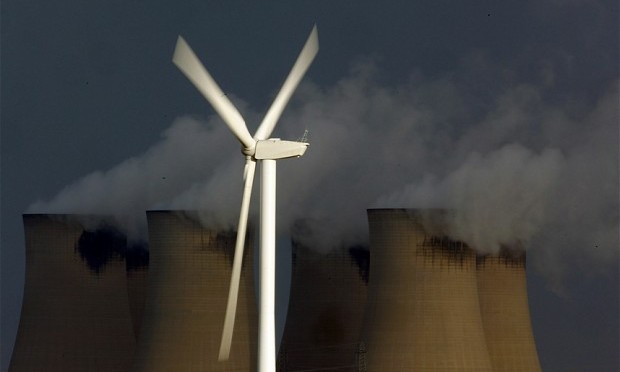Climate change is a debacle for the Australian right. Their tribal hatred of environmentalists has driven them to denounce any technology favoured by their enemies.
Tony Abbott’s quip that emissions trading schemes represent “a so-called market in invisible stuff” has been rightly derided as a dog-whistle to climate denialists, unsuccessful only in that it was not pitched high enough to escape detection by the rest of us. Critics have had plenty of fun pointing out the many examples of “invisible stuff” that is, like carbon dioxide, critically important despite the fact that we can’t see it – electricity, financial risk, and so forth.
A point that has attracted rather less attention is the extent to which the views of Abbott’s team on climate are being driven by claims about something that is not only invisible and inaudible, but indeed non-existent – namely the supposed health effects of wind farms. The belief that wind farms are dangerous to human health has been widely propagated on the political right, despite the absence of supporting scientific evidence.
The leading Australian promoters of wind paranoia are the Waubra Foundation, the Australian Landscape Guardians and the Australian Environment Foundation (AEF). These groups are often linked with each other and with rightwing organisations like the Institute of Public Affairs (IPA). The AEF in particular is a straightforward front group – it was set up by former IPA senior fellow Jennifer Marohasy and originally operated out of the IPA offices in Melbourne.
The supposed health risks of wind turbines have also been pushed by Graham Lloyd in The Australian newspaper, other rightwing columnists like Miranda Devine, and conservative politicians including Craig Kelly and John Madigan.
To get the boring scientific facts out of the way, the National Health and Medical Research Council investigated the issue in 2009 and 2010. The review considered the potential health impacts of infrasound, noise, electromagnetic interference, shadow flicker and blade glint produced by wind turbines and concluded that, “at the time of writing, there was no published scientific evidence to positively link wind turbines with adverse health effects.”
The striking feature of this laundry list of possibilities is the absence of any plausible mechanism by which wind turbines could hurt anybody. The invisibility of moving air is complemented by the inaudibility of so-called infrasound, low frequency sound which is, in fact, no more significant in the vicinity of wind turbines than anywhere else.
In reality, most if not all of the health effects of wind farms may turn out to be those generated by the activities of anti-wind power groups. A study by researchers from New Zealand’s University of Auckland has shown that “negative health information readily available to people living in the vicinity of wind farms” has the potential to create symptom expectations.
Under pressure from the anti-wind lobby, the NHMRC is undertaking a further review, which will doubtless reach the same conclusion, though possibly with some diplomatic phrasing regarding psychosomatic complaints.
What is striking about all this is that scaremongering about the health effects of wind farms is closely associated with the political right, and specifically with individuals and groups who commonly deride concerns about environmental risks as “alarmism”.
The Institute of Public Affairs has opposed tobacco control in the form of plain packaging in the past, a stance highly convenient to the tobacco companies that may have provided funding to it (the IPA has routinely refused to confirm the source of their funding). And yet, the IPA’s rhetoric on environmental risks is full of high-minded concern about the risks of over-regulation and a loss of competitiveness based on inconclusive evidence, paired with draconian restrictions largely echoing the anti-wind movement’s position.
Not everyone on the political right backs the anti-science alarmists on wind turbines. But no-one appears willing to challenge them explicitly. Shadow environment minister Greg Hunt is characteristically weaselly, saying “the Coalition is aware of the community concerns regarding wind farms”, adding “we have committed to a full medical research into the potential impact if elected. It is important that MPs listen to their communities”.
The debate over climate change has been an intellectual debacle for the political right. Their tribal hatred of environmentalists has driven them into a position of denouncing any technology favoured by their enemies. The only invisible substance with which Abbott and his backers should be concerned about is their disappearing intellectual credibility.


